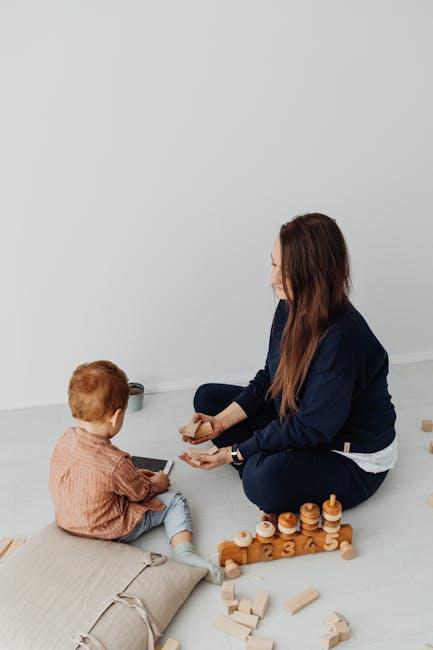The Ultimate Beginner’s Guide to Homeschooling

Welcome to the wild world of homeschooling, where P.E. can be a dance party in the living room, math can be counted in cookie chips, and recess never ends (unless your mom says it’s time for “quiet time”). Whether you’ve decided to take the plunge into educating your kiddos from the comfort of your own living room or you’re just considering it, this guide is here to help you navigate the ups and downs of homeschooling like a pro. So grab your favorite novelty pencil and let’s dive into the ultimate beginner’s guide to homeschooling – because who says school can’t be fun?!
Choosing to Homeschool: Is it Right for You?
So, you’re thinking about diving into the world of homeschooling? Well, buckle up because it’s going to be a wild ride! Here are some things to consider before taking the plunge:
First things first, are you ready to spend 24/7 with your kids? No more dropping them off at school and enjoying some peace and quiet for a few hours. Nope, now you’ll be their teacher, their lunch lady, and their principal. Get ready for some serious bonding time!
Next, are you prepared to handle the inevitable meltdowns and tantrums that will come with trying to teach your kids algebra or chemistry? It’s not all rainbows and butterflies, folks. Some days you’ll want to pull your hair out and run screaming into the sunset.
But hey, on the plus side, you’ll have the freedom to create your own schedule and curriculum. No more adhering to the strict rules and regulations of the public education system. Want to take a field trip to the zoo in the middle of the day? Go for it! Want to spend an entire week learning about dinosaurs? Knock yourself out! The possibilities are endless.

Understanding Homeschooling Laws and Regulations
So, you’ve decided to take the plunge into the world of homeschooling. Congratulations! Now, before you dive headfirst into teaching algebra and dissecting frogs in your living room, it’s important to understand the laws and regulations that govern homeschooling.
First things first, you need to check out the specific homeschooling laws in your state. Each state has its own set of rules and requirements for homeschooling, so make sure you’re familiar with what’s expected of you. You don’t want to end up accidentally breaking the law and having the homeschooling police show up at your door.
One of the most important things to keep in mind is that you may need to keep detailed records of your child’s education. This could include attendance records, lesson plans, and samples of your child’s work. It’s basically like being a secret agent, but instead of fighting crime, you’re fighting ignorance.
And lastly, don’t forget about socialization requirements. Yes, believe it or not, your child will still need to interact with other human beings. So make sure you’re aware of any rules about how often your child needs to socialize with their peers. Who knows, maybe they’ll even make a homeschool friend that they can text algebra equations to at 2 am.
Setting Up Your Homeschool Space: Tips and Tricks
So you’ve decided to join the ranks of homeschooling parents - welcome to the madness! Now comes the fun part: setting up your homeschool space. Here are some tips and tricks to help you create a learning environment that is both functional and fabulous.
First things first, designate a specific area in your home for homeschooling. This could be a spare room, a corner of the living room, or even a closet (no, seriously). Make sure it’s a space where you and your little scholars can focus and get down to business. And remember, it doesn’t have to be Pinterest-perfect – just functional and fun!
Next, think about organization. Invest in some storage solutions like bins, baskets, and shelves to keep all your homeschooling supplies in one place. Trust me, you don’t want to be hunting for that missing glue stick or ruler when you’re in the middle of a lesson. And if all else fails, just throw everything in a big ol’ box and call it a day.
Don’t forget to personalize your homeschool space! Add some fun decorations, inspirational quotes, or even a cozy reading nook. Make it a place where your kids want to be – not just because they have to, but because they actually enjoy learning in their little slice of homeschool heaven. And most importantly, don’t forget to have fun with it! Homeschooling is a wild ride, so buckle up and enjoy the journey.

Curriculum Options: Finding the Best Fit for Your Child
So, you’ve decided it’s time to figure out the best curriculum option for your child. No pressure, right? Here are a few suggestions to help you navigate this daunting task:
First off, consider your child’s interests and learning style. Are they a hands-on learner who thrives with interactive activities? Or maybe they’re more of a visual learner who benefits from colorful visuals and diagrams. Knowing your child’s preferences can help narrow down the endless sea of curriculum options out there.
Next, think about your own preferences and abilities as a teacher. Are you a Pinterest-perfect homeschooling mom who loves crafting elaborate lesson plans? Or are you more of a fly-by-the-seat-of-your-pants type who prefers a curriculum that does most of the heavy lifting for you?
Lastly, don’t forget to take into account your budget. Some curriculum options can cost as much as a small car, while others are more budget-friendly. Remember, you don’t need to break the bank to provide a quality education for your child.

Creating a Daily Schedule and Routine for Homeschooling
So you’ve decided to take on the daunting task of homeschooling your children. Congratulations! Now comes the fun part – creating a daily schedule and routine that will keep everyone on track and (hopefully) prevent any meltdowns.
First things first, let’s talk about setting up a designated learning space. This can be anything from a fancy home office to a cardboard box fort in the living room. The important thing is to make sure it’s a place where your little scholars can focus and get their work done.
Next, let’s talk about the actual schedule. Remember, you’re in charge now – you get to decide when school starts and ends. Just make sure to include plenty of breaks for snacks, naps, and random dance parties. And don’t forget to build in some time for outdoor activities – recess is a sacred time that must be honored.
Lastly, don’t stress too much about sticking to the schedule perfectly. Homeschooling is all about flexibility and creativity. If a science experiment goes awry or a math lesson turns into a philosophical debate, go with it. The goal is to create a positive and fun learning environment, not to adhere to a strict timetable. Now go forth, brave homeschooling parents, and conquer the world one lesson plan at a time!
Engaging Your Child in Extracurricular Activities
Are you tired of constantly hearing “I’m bored” from your child? It’s time to get them involved in some extracurricular activities! Not only will they have fun and make new friends, but they’ll also develop important skills along the way.
One great way to engage your child is through sports. Whether it’s soccer, basketball, or even ultimate frisbee, there’s a sport out there for everyone. Plus, it’s a great way to get them off the couch and moving their bodies. Who knows, maybe they’ll even become the next LeBron James!
Another option is to enroll them in a dance or music class. Not only will they have a blast learning new moves or instruments, but they’ll also gain confidence and discipline. Plus, you never know, they might end up on Broadway one day!
Don’t forget about clubs and organizations at school or in your community. From chess club to robotics club to volunteering, there are endless opportunities for your child to get involved and explore their interests. Who knows, maybe they’ll even discover a passion they never knew they had!
Building a Support Network: Finding Other Homeschooling Families
One of the key ingredients to a successful homeschooling journey is finding other families who are also navigating the wild and wacky world of educating their kids at home. Building a support network of like-minded individuals can provide you with a sense of camaraderie, laughs, and a shoulder to cry on when things get tough.
So how do you go about finding your homeschooling tribe? It’s not as daunting as it may seem. Here are a few tips to help you connect with other families who are in the same boat:
- **Join local homeschooling groups:** Whether it’s a Facebook group, a co-op, or a meet-up, these groups are a treasure trove of fellow homeschoolers who can offer advice, resources, and maybe even a playdate or two.
- **Attend homeschooling conferences and events:** These gatherings are like speed dating for homeschoolers. You never know who you might meet or what nugget of wisdom you might walk away with.
- **Put yourself out there:** Strike up conversations at the playground, library, or grocery store with other parents who look like they might be homeschoolers. You never know – they could be your new best homeschooling buddies.
Remember, homeschooling can sometimes feel like you’re on a desert island. But with a support network of other families, you’ll never feel like you’re stranded alone. So get out there, be brave, and forge those bonds with your fellow homeschoolers. You’ll be glad you did!
FAQs
How can I stay organized while homeschooling?
Who said homeschooling has to be organized? Just throw those textbooks and workbooks wherever you please and hope for the best! But if you’re a bit more on the Type A side, consider creating a schedule, implementing a designated workspace, and utilizing some cool apps to stay on track.
How do I handle socialization for my homeschooled child?
Who needs friends when you have siblings, right? But if you’re worried about your child becoming a hermit, fear not! There are plenty of ways to socialize your homeschooler, from joining co-ops and extracurricular activities to scheduling playdates with other homeschool families.
Do I need any special equipment or materials for homeschooling?
Other than a never-ending supply of coffee for yourself, not really! While having some basic school supplies like pencils, paper, and a computer is helpful, you can make do with whatever you have on hand. Get creative and use everyday items for educational purposes – a bag of M&Ms can double as a math lesson!
How can I ensure my child is receiving a quality education at home?
Who needs a fancy private school education when you can DIY it at home? Ensure your child is getting a quality education by tailoring the curriculum to their needs and interests, seeking feedback from them, and constantly evaluating and adjusting your approach. And if all else fails, there’s always YouTube.
What are some common misconceptions about homeschooling?
Misconceptions? Who cares about those! But if you must know, some people think homeschoolers miss out on socialization, lack structure and discipline, and are weird, unsocialized misfits. But hey, who wants to be “normal” anyway? Embrace the homeschool weirdness!
Happy Homeschooling!
So there you have it, the ultimate beginner’s guide to homeschooling! Remember, just like in any new adventure, there will be challenges along the way. But with a little bit of patience, a lot of creativity, and a whole bunch of snacks, you’ll be well on your way to becoming a homeschooling pro in no time. Good luck, have fun, and here’s to a successful and stress-free homeschooling journey!






